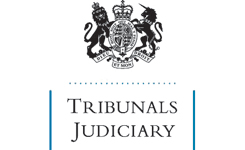|
Notes:
|
Reported as [2012] AACR 25.
Child support maintenance assessment – cancellation where parents attempt reconciliation – meaning of “there no longer being any qualifying child”
Following an assessment on 15 August 1999 the Secretary of State decided that as from 4 January 1999 the father was in principle liable to pay child support maintenance but that the actual amount of liability under the rules was nil. On 9 July 2003 the Secretary of State decided that as from 24 January 2003 the father was liable to pay child support maintenance of £94.21 weekly. In February 2007 the father applied to the Secretary of State for the assessment to be cancelled on the basis of a brief reconciliation between September and November of 1999. The Secretary of State cancelled the assessment (including the 2003 assessment) as from 15 July 1999, which the Secretary of State took as the date of reconciliation. The mother appealed to the tribunal against that decision and the tribunal allowed the appeal to the extent of cancelling the assessment as from 15 September 1999 rather than from 15 July 1999. The tribunal felt bound by R(CS) 8/99 and CCS/1740/2005 to uphold the rest of the decision. The tribunal gave the mother leave to appeal against its decision. The matter was transferred to the Upper Tribunal. Paragraph 16(1) of Schedule 1 to the Child Support Act 1991 provided at the material time that an assessment shall cease to have effect where by (b) there is no longer any qualifying child with respect to whom it would have effect or by (d) the absent parent and the person with care with respect to whom it was made have been living together for a continuous period of six months. Paragraph 16(1)(d) had subsequently been repealed in respect of cases under the new child support scheme. The father, supported at that stage by the Child Maintenance and Enforcement Commission, argued that a child cannot be a qualifying child unless at least one of his or her parents is an absent parent (section 3(1) of the Act), and a parent cannot be an absent parent if he is living in the same household as the child (section 3(2)(a)), and therefore, as soon as a reconciliation takes place and the parents start living in the same household, there is no longer a qualifying child and therefore by paragraph 16(1)(b) the maintenance assessment ceases to have effect. The Upper Tribunal judge held*, disagreeing with R(CS) 8/99 and CCS/1740/2005, that the correct analysis of paragraph 16(1)(b) is that it is about there no longer being a qualifying “child”, rather than about the particular child no longer “qualifying”, and, as in the present case the child was still of the appropriate age and still with the parties during the period of reconciliation, paragraph 16(1)(b) did not come into play. However, during the period of reconciliation the father was no longer an absent parent as defined in section 3(2) of the Act and therefore there could be no duty on him to make periodical payments. As the reconciliation lasted less than six months paragraph 16(1)(d) did not come into play and at the end of the reconciliation period he resumed the status of being an absent parent and hence liability to make payments pursuant to the maintenance assessment. The father appealed to the Court of Appeal. Before the Court of Appeal the Child Maintenance and Enforcement Commission as second respondent supported the interpretation of the Upper Tribunal judge.
*Decision reported as [2010] AACR 24.
Held, dismissing the appeal, that:
1. a conclusion that a maintenance assessment would cease to have effect by reason of a short period of the parents living together would render sub-paragraph (a) (death of absent parent or parent with care) at least partially and sub-paragraph (c) (absent parent ceasing to be a parent of the qualifying child) totally redundant and would undermine sub-paragraph (d), which deals expressly with persons living together, and indeed (per Pill LJ) to import word for word the definitions in section 3 into sub-paragraph 16 would render sub-paragraph (d) absurd, since the absent parent would cease to be an absent parent as defined immediately upon the resumption of cohabitation (paragraphs 37, 55 and 56);
2. the other sub-paragraphs in paragraph 16(1) contemplate a specific and permanent event, and it is likely that sub-paragraph (b) was also intended to apply on the occurrence of a specific event, loss of status as a child, as suggested by the wording “no longer” a qualifying child, and not a transient one. It would contradict Parliament’s plain intention that an assessment should cease to have effect only at the end of six months’ continuous cohabitation to hold that in fact it ceased to have effect at some earlier point in the period of cohabitation (paragraphs 37 and 57 to 59);
3. the presence of section 16(6) (repealed for new cases) assumed the need for an application to the Secretary of State (now the Commission) to achieve a cancellation of the maintenance assessment when the parties were living together, a provision inconsistent with cancellation merely by living together (paragraph 37);
4. having regard to those factors and to the underlying purpose of the 1991 Act, sub-paragraph (b) did not have the effect for which the appellant contended. In the context of paragraph 16 as enacted at the material time, it was concerned with the continued status of the child as a child and did not operate to terminate the maintenance assessment immediately upon a return of the formerly absent parent to live with the parent with care (paragraphs 38 to 41, 59). |
